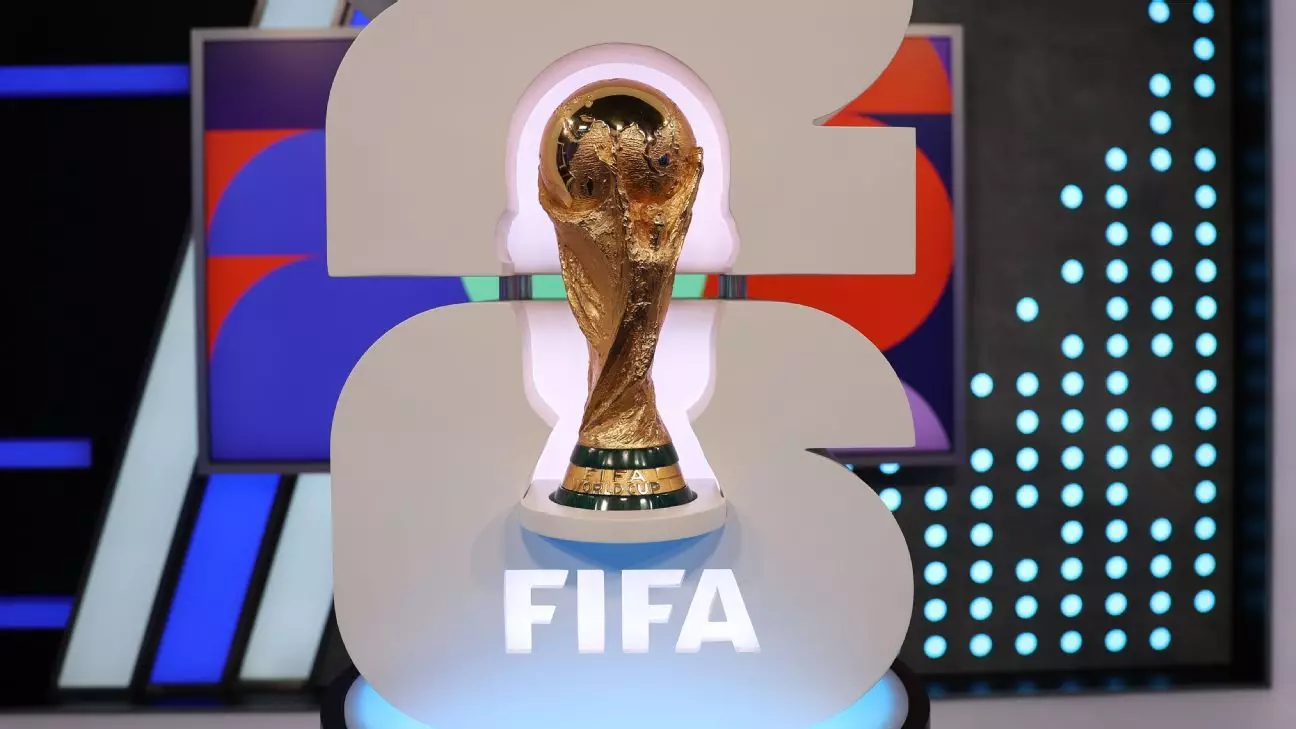In a decisive move, the Norwegian Football Federation (NFF) has voiced its opposition to FIFA’s approach regarding the upcoming World Cup hosting rights for 2030 and 2034. This stance reflects broader concerns surrounding transparency and governance in international football, particularly within FIFA. The NFF’s public dissent highlights an increasing unease among national federations about decision-making processes that may undermine the integrity of the sport.
The NFF’s decision to vote against the acclamation of the World Cup host selection is not merely a procedural objection; it represents a principled stand against what the federation perceives as a flawed and opaque decision-making framework. As FIFA prepares for its virtual Congress, the significance of dissenting voices in a largely unchallenged context cannot be overstated. The NFF’s official communication indicates their commitment to championing fundamental principles of fairness and accountability within the organization.
NFF President Lise Klaveness articulated this perspective, emphasizing that the Congress is not merely a formality intended to rubber-stamp decisions but rather an opportunity to scrutinize FIFA’s overall governance. By abstaining from the acclamation vote, the NFF seeks to signal to its peers and the football community that FIFA’s procedures do not align with the expectations set out in their governance reforms, suggesting a disconnect between FIFA’s rhetoric and its operational reality.
FIFA’s process surrounding the World Cups has been criticized for its lack of competitive bidding, particularly with the solitary bids from Morocco, Spain, and Portugal for the 2030 event, and Saudi Arabia for 2034. While the absence of competing bids might simplify the voting process, it raises questions about the democratic nature of the selection. Critics argue that without competitive bids, opportunities for diverse nations to showcase their capabilities and ambitions are severely limited.
The failed attempts by Australia and Indonesia to present a joint bid for 2034 emphasize the perceived inequity in FIFA’s approach. As nations withdraw from considerations, the ramifications of an exclusive bid could signify broader issues of inclusivity and representation in global football governance. The NFF’s critique adds to the chorus of voices calling for a reassessment of how hosting rights are determined, pushing for processes that truly reflect the values of international sport.
One of the most compelling arguments made by the NFF revolves around the integration of human rights considerations in FIFA’s bid assessment. Klaveness highlighted a stark concern: that FIFA’s established guidelines regarding human rights and due diligence have not permeated the decision-making layers as intended. This omission poses serious risks regarding compliance with international human rights standards, particularly in contexts where bidding nations may not have robust frameworks for safeguarding these rights.
The relationship between football governance and human rights is increasingly in the public eye, especially in light of various controversies surrounding major sporting events. The NFF’s insistence that FIFA strengthen its regulations is a necessary step in promoting a culture of accountability and ethical responsibility. It is a call to ensure that the beautiful game is not tainted by the darker aspects of governance issues.
Path Forward: A Call for Reform
Ultimately, the NFF’s stance represents a critical juncture for FIFA, as dissent from established football federations calls for transformative change. By highlighting deficiencies within the current bidding process, the NFF is advocating for a reformed approach that aligns better with principles of transparency, equity, and accountability.
As FIFA navigates its forthcoming Congress, it stands at the crossroads of adhering to established practices or embracing a more progressive, inclusive governance model. The NFF’s actions could potentially catalyze a broader movement among national federations that seek to hold FIFA accountable, ensuring that its role as a global steward of football is maintained with integrity and respect for the values that the sport epitomizes.
The NFF’s critical reflection on FIFA’s hosting process serves as a clarion call for reevaluation and reform. With an audience of nations watching closely, now is the time for FIFA to take commendable steps toward accountability and commitment to ethical governance for the future of football.

